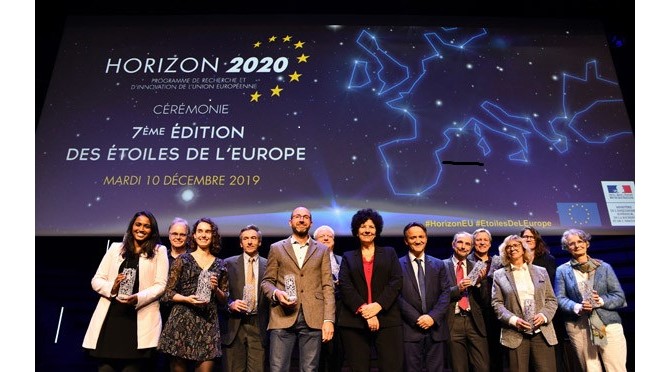The “Étoiles de l’Europe” prize rewards European research and innovation projects coordinated by French organizations and honors their coordinators who have made the choice of Europe and demonstrated their ability to lead large-scale networks. This year’s 12 “Stars of Europe” have been selected by a high-level jury for the scientific quality and international dimension of the project, the economic, technological and societal benefits generated, the multidisciplinary and inclusive aspect of the project, especially for women and young researchers, as well as the strategic dimension of the project (accessibility of results, regional development).
The iSwitch project (2015–2018) was a Marie Skłodowska-Curie Action (MSCA) Innovative Training Network (ITN) European Training Network (ETN) funded by the European Union Framework Programme for Research and Innovation Horizon 2020. The network consisted of 14 interdisciplinary academic and industrial partners from 7 different European countries (France, Germany, Belgium, Spain, Italy, United Kingdom and Switzerland). Based on a joint innovative training program in a unique cross-disciplinary academic and industrial environment, iSwitch offered a high-level suprasectoral and multidisciplinary training to a pool of talented young researchers at the interface between chemistry, physics and engineering in the emerging fields of materials science and nanoscience, with the ultimate goal of mastering at the highest level the training through research and seeding a new generation of leading scientists for the public and private sectors.
The iSwitch project was indeed most successful in terms of jobs created in Europe. Among the young researchers trained, 7 were recruited by world leaders in the industry, in multinational companies (Johnson & Johnson, Italy; Dow Chemicals, Italy; Huawei, United Kingdom; ABB, Switzerland; Micron, Italy) or SMEs (GNext, Italy; Scriba Nanotecnologie, Italy), 1 was appointed associate researcher (University of Palermo, Italy) and the others are either pursuing a postdoc in universities of excellence (e.g. University of Groningen, The Netherlands) or finalizing their PhD thesis.
The iSwitch project has contributed to the advancement of science and society. The fundamental knowledge gained during iSwitch has led to major advances in the field of (opto)electronic devices based on self-assembled supramolecular architectures incorporating molecular switches for new disruptive technologies such as smart textiles, medical diagnosis (lab-on-a-chip), biocompatible devices (artificial retina and muscles), quantum computers and cryptography. The companies involved in iSwitch capitalize on these scientific discoveries by leveraging them to a higher technological level. The technologies developed in iSwitch will have a positive impact on the well-being, health and safety of European citizens, thus contributing to the transition to a knowledge-based, sustainable and citizen-driven society that requires new models of production and consumption.

